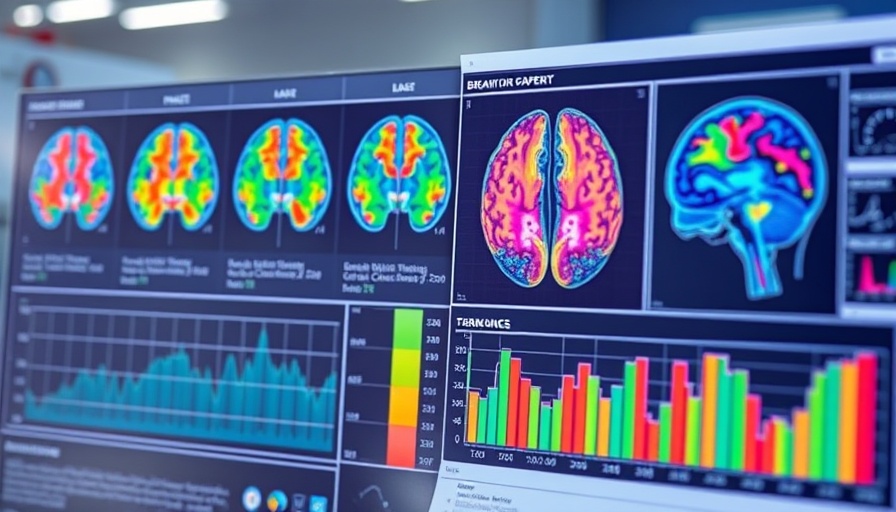
Unlocking the Mystery of Ritalin's Variable Efficacy
Understanding why Ritalin, a common medication prescribed for ADHD, shows varying levels of effectiveness among individuals is crucial. A recent study from the University of Maryland reveals that these differences can be traced back to individual brain wiring and the balance of dopamine receptors. This discovery challenges preconceived notions about how stimulant medications function and poses new questions about the treatment of ADHD.
What Is ADHD and Why Does It Matter?
Attention Deficit Hyperactivity Disorder (ADHD) affects nearly 16 million adults in the United States, a condition characterized by difficulties in maintaining attention and controlling impulsive behavior. Despite the availability of medications like Ritalin and Adderall, recent findings suggest that over 30% of those diagnosed may not respond favorably to these treatments. Understanding the underlying reasons for these disparities is vital for improving health and wellness strategies, especially as mental health becomes an increasingly pivotal component of overall well-being.
Brain Chemistry: The Key Player
The latest research highlights the role of dopamine receptors in predicting the success of stimulant medications. The study, co-authored by researchers at the University of Maryland, evaluated brain activity in 37 healthy adults performing concentration tasks. Participants underwent brain scans, which confirmed that those with a balanced ratio of D1 to D2 dopamine receptors exhibited better cognitive performance. This finding indicates that simple increases in dopamine levels may not be sufficient; rather, the type of receptors and their balance play a crucial role in the efficacy of medications like Ritalin.
The Importance of Individual Differences
Individual differences in brain circuitry and biochemistry underscore the complexity of treating ADHD. Treatments must evolve to accommodate these variances; what works for one patient may not work for another. This nuance in treatment necessitates personalized approaches to health and wellness, particularly within the context of mental health. Incorporating this understanding into practice could lead to more tailored therapies that cater to individual needs, rather than the one-size-fits-all mentality that often prevails.
Broader Implications for Health and Wellness
This ground-breaking insight into ADHD treatment not only has ramifications for those diagnosed with the disorder but also holds broader implications for mental health and wellness initiatives. Health and wellness centers can use this information to create programs that educate both healthcare providers and patients on the importance of personalized treatment. By acknowledging the biological diversity in individuals, programs may become more effective at fostering optimal health and wellness outcomes in the community.
Emerging Trends in Mental Health Treatments
As the understanding of cognition and brain chemistry evolves, so too will treatment paradigms in mental health. Future treatments may include a combination of pharmacological interventions tailored to the individual's unique brain chemistry along with lifestyle changes and alternative therapies. Implementing a holistic approach that marries traditional medicine with exercise, nutrition, and mental health strategies will likely yield the best outcomes for patients. This comprehensive view will help inform not just the treatment of ADHD, but the broader domains of health and wellness as well.
Steps Towards Optimal Health and Wellness
For individuals seeking to improve their overall wellness, understanding the science behind treatments such as Ritalin can serve as a powerful tool. Incorporating healthy lifestyle habits, including regular exercise, a balanced diet, and adequate sleep, can complement medical treatments and enhance mental clarity and focus. Additionally, exploring holistic methods such as yoga and mindfulness could promote both physical and mental well-being.
The Future of ADHD Treatment: Personalized Care Approaches
The shift towards personalized treatment plans represents a significant trend within health and wellness. Investigating the nuances of brain chemistry and individual responses to medications will not only assist those with ADHD but will also inform treatments for various mental health disorders. By prioritizing individualized care, patients can experience better outcomes and improved quality of life.
As new insights into brain function and treatment emerge, health and wellness professionals should consider how these developments can be integrated into their practices. Engaging with the broader implications for mental health and monitoring ongoing research will help pave the way for improved patient care and successful health interventions.
 Add Row
Add Row  Add
Add 




 Add Row
Add Row  Add
Add 


Write A Comment